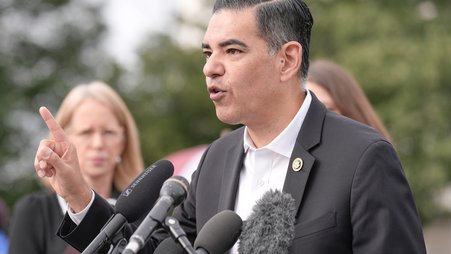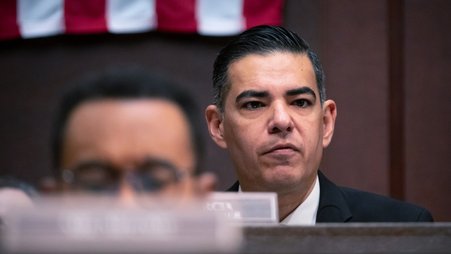Three weeks ago, Rep. Alan Grayson convinced the House to pass a bill that would go a long way to protect journalists from being subpoenaed for their sources, yet hardly anyone noticed. Attached to its annual appropriations bill, the House voted 225-183 to pass a simple provision that read as follows:
"None of the funds made available by this Act may be used to compel a journalist or reporter to testify about information or sources that the journalist or reporter states in a motion to quash the subpoena that he has obtained as a journalist or reporter and that he regards as confidential.''
In light of a spate of scandals involving the Justice Department directly going after journalists—including the AP case, Fox News case, and the recent James Risen decision—this bill is a huge step forward. Unfortunately, as the Senate moves to vote on their version of the appropriations bill this week, no Senator has taken up Rep. Grayson’s provision yet.
Separately, the Senate has it’s own overly complex shield bill that has been stalled for years, but it’s so watered down at this point, we wonder whether it’s worth passing at all. It has a definition of “covered journalist” that could leave some citizen journalists without protection and other news organizations like WikiLeaks without protection. (Why is Congress deciding who is and who isn’t a journalist at all?). It also creates a national security exception that could negate the reason for passing it in the first place. And as scholar David Pozen argued, it’s possible the bill “may amount to more media subpoenas.”
However, many think the Senate’s shield bill, while full of holes, would be better than the status quo—especially in the light of the James Risen case which all but eliminated any reporter’s privilege in the Fourth Circuit. Last week, seventy media organizations sent a letter to the Senate last week urging them to pass the weakened Senate Bill. Instead of asking them pass a stronger bill, which James Risen himself publicly implored media organizations to do a couple months ago, they’ve asked the Senate to pass the already weakened version.
Why not adopt Grayson’s version instead? It’s already passed the House, and they can get it to the President's desk within a week. If Senators are worried about long term affects, the bill only applies for one year and has to be renewed with next year’s appropriations bill. It gives plenty of time for Congress to get a stronger shield law shield law in place, and in fact, could create the needed push to do just that.
Hopefully someone in the Senate will show some leadership and decide to take up Rep. Grayson’s provision this week. It's past time Congress give journalists some real protection under federal law they deserve.




